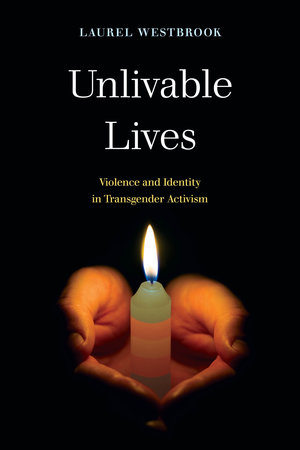From the earliest marches in 1970 to this month’s events around the Bay Area and the world, Pride has celebrated and commemorated the LGBTQ community’s culture and heritage for over 40 years. While COVID-19 has changed the nature of celebrations this year, UC Press is honored to publish titles that shed light on the unique experiences of LGBTQ individuals and ongoing struggles of the LGBTQ community.
The titles featured in this list speak to transgender issues, activism, and community.
Trans
A Quick and Quirky Account of Gender Variability
by Jack Halberstam
In the last decade, public discussions of transgender issues have increased exponentially. However, with this increased visibility has come not just power, but regulation, both in favor of and against trans people. What was once regarded as an unusual or even unfortunate disorder has become an accepted articulation of gendered embodiment as well as a new site for political activism and political recognition. In Trans*, Jack Halberstam explores these recent shifts in the meaning of the gendered body and representation, and explores the possibilities of a nongendered, gender-optional, or gender-queer future.
Trans Kids
Being Gendered in the Twenty-First Century
by Tey Meadow
Drawing from sociology, philosophy, psychology, and sexuality studies, sociologist Tey Meadow depicts the intricate social processes that shape gender acquisition. Where once atypical gender expression was considered a failure of gender, now it is a form of gender. Engaging and rigorously argued, Trans Kids underscores the centrality of ever more particular configurations of gender in both our physical and psychological lives, and the increasing embeddedness of personal identities in social institutions.
Unlivable Lives
Violence and Identity in Transgender Activism
by Laurel Westbrook (coming Nov. 2020)
The vast majority of anti-violence activism in the United States occurs within the framework of identity politics. Identity-based movements, such as those to stop violence against people of color, women, and LGBT people, have become so commonplace as to seem to be a natural way to reduce violence. Unlivable Lives examines how identity politics and anti-violence activities shape group identity and practices of activism in ways that can be unintentionally damaging to the very groups they aim to protect. Analyzing thirteen national organizations working to reduce the violence experienced by transgender people, sociologist Laurel Westbrook reveals that activists use a number of techniques with consequences that run counter to the goal of making trans lives more livable. Rather than reducing fear, these tactics may actually increase it, leaving group members convinced that a violent fate is inevitable. Provocative and galvanizing, this book envisions new strategies for anti-violence and social justice movements and will revolutionize the way we think about this form of activism.


